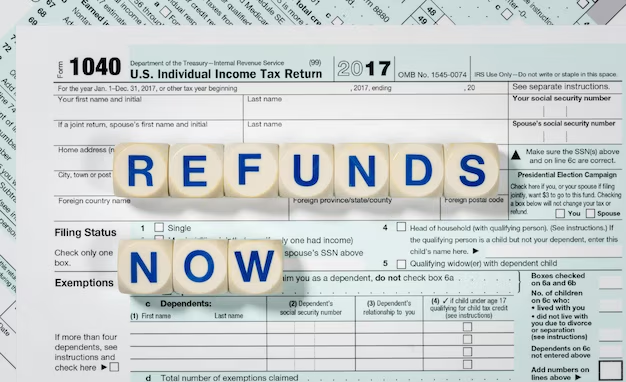Your Guide to How Far Back Can The Irs Do An Audit
What You Get:
Free Guide
Free, helpful information about IRS FAQ and related How Far Back Can The Irs Do An Audit topics.
Helpful Information
Get clear and easy-to-understand details about How Far Back Can The Irs Do An Audit topics and resources.
Personalized Offers
Answer a few optional questions to receive offers or information related to IRS FAQ. The survey is optional and not required to access your free guide.
Navigating IRS Audits: How Far Back Can They Go?
Dreaded by many and misunderstood by even more, audits are a part of the financial landscape that can keep individuals and businesses on their toes. One pivotal question often asked is: "How far back can the IRS audit your taxes?" While at first glance, the answer may seem straightforward, understanding the nuances of IRS audits can alleviate concerns and prepare taxpayers for what they might face.
Time Limits on IRS Audits: The Basics
The IRS generally has a three-year window to audit your return after it's been filed. This means if you filed your tax return on April 15, 2020, they have until April 15, 2023, to initiate an audit. The three-year timeframe is commonly referred to as the "Statute of Limitations."
Exceptions to the Rule
However, this standard three-year period is not set in stone. Several exceptions could extend the time frame beyond those three years:
Unreported Income: If you omit more than 25% of your gross income on your tax return, the IRS can audit for up to six years.
Foreign Assets: Failure to report certain foreign income or assets might prolong the window for an audit. The IRS can audit your returns for up to six years in these cases.
Fraud or Willful Evasion: If the IRS suspects fraud or tax evasion, there's no time limit on when they can initiate an audit.
Unfiled Returns: If you didn’t file a tax return, the IRS can audit at any time for that year, as there's no statute of limitations.
Breaking Down the Audit Process
Understanding how audits work can better prepare you if one occurs. Here is a general pathway the IRS follows when auditing:
Initial Contact: Usually, an audit begins with a letter or notice from the IRS asking for additional information about your tax return. They will not initiate an audit through phone calls or emails.
Types of Audits:
- Correspondence Audit: The most common type. Involves mailing documents to the IRS to verify specific items.
- Office Audit: Conducted at an IRS office where you are asked to bring specific documentation.
- Field Audit: The most comprehensive, where an IRS agent visits your home or business.
Documentation Review: You’ll need to provide documentation for the items in question. This includes receipts, invoices, and other financial statements.
Resolution: Once the audit is complete, you’ll either hear if you owe additional taxes, or nothing at all if everything checks out. If discrepancies are discovered, you have options to agree or appeal.
Why Audits Happen: Red Flags and Triggers
Knowing why audits occur can help in avoiding them. Here are some potential audit triggers:
- High Income: Statistically, higher income earners are audited more frequently.
- Mismatch of Forms: Inconsistencies between forms reported, like W-2s or 1099s.
- Large Deductions: Claiming disproportionately large deductions can raise eyebrows.
- Business Losses: Reporting consecutive losses might compel the IRS to check if it's genuinely a business or a hobby.
- Foreign Accounts: Unreported foreign accounts and transactions may draw scrutiny.
Strategies to Minimize Audit Risks
While not all audits can be avoided, some strategies can help minimize the risk:
- Accuracy and Consistency: Double-check all entries for accuracy. Ensure numbers reported by your employers or clients match your reports.
- Document Everything: Keep all receipts and documents to back up claims on your return.
- Seek Professional Help: Accountants and tax professionals can help ensure your tax return is filed correctly and minimize risks.
List of Key Takeaways 📝
Standard Audit Window: Generally, the IRS can audit up to three years after filing.
Extensions to Consider:
- Over 25% gross income omission: Six years
- Unreported foreign assets: Six years
- Fraud or evasion: No limit
- Unfiled returns: Open-ended
Understanding Audits:
- Starts with a notice, not a call or email.
- Can involve correspondence, office, or field audits.
Avoiding Triggers:
- Be meticulous with form matches.
- Document claims thoroughly.
Seek Expertise: Leverage tax professionals to reduce potential issues.
Life Beyond the Audit: Moving Forward
Not every audit results in a daunting financial discovery. Most are routine and can be swiftly resolved by maintaining good records and a clear understanding of IRS expectations. Moreover, leveraging expert advice when needed and keeping abreast of tax law changes annually can help navigate these complexities smoothly.
Understanding these principles won't prevent all audits, but can certainly fortify your position should one occur. The key is consistent, meticulous record-keeping and proactive management of your financial documentation.
What You Get:
Free IRS FAQ Guide
Free, helpful information about How Far Back Can The Irs Do An Audit and related resources.

Helpful Information
Get clear, easy-to-understand details about How Far Back Can The Irs Do An Audit topics.

Optional Personalized Offers
Answer a few optional questions to see offers or information related to IRS FAQ. Participation is not required to get your free guide.


Discover More
- Are Irs Economic
- Are Irs Economic Impact Payments Still Available
- Are We Getting Ctc Payments In 2024 Irs
- Can Form 8822 Be Faxed To Irs
- Can I Brown Act Irs
- Can I Call The Irs
- Can I Edit Any Irs Payment After I Did It
- Can I Go To Irs For Support
- Can I Have The Irs Apply My Overpayment If Divorced
- Can I Make Payments To The Irs
